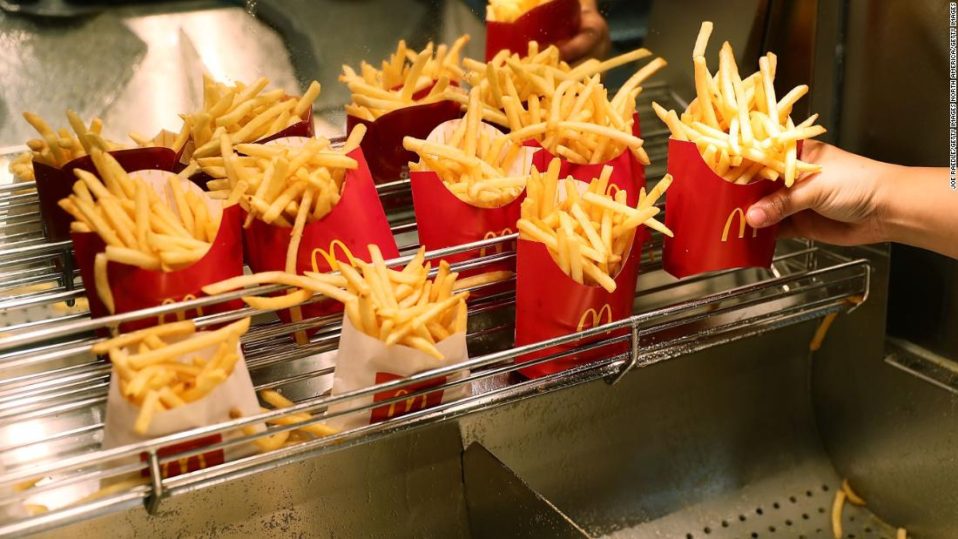-Elizabeth Chinery, Junior Community Outreach Coordinator

CNN.com
Being a vegetarian can still result in an unhealthy lifestyle if not executed properly. For example, a lot of people who go in to vegetarianism think it just means eliminating meat and consuming more vegetables and fruits. However, many like Tia Miller (the writer of the article below) consume vegetables that are botanically classified as a vegetable but nutritionally classified as a starchy food; for example, consuming potatoes in the form of “french fries, chips, mashed potatoes, baked potatoes, sweet potatoes”. Miller even admits to eating “fruit snacks” as her intake of fruits. Even if you are someone who doesn’t do these things, consuming “veggie meat” on a regular basis is just as harmful since the majority of them are chemically processed, just like many non-veggie meats. Miller says that the combination of these three eating habits caused her to “struggle with severe anemia, ADHD and fatigue” within a year of her switch to vegetarianism. She would even “break [her] vegetarianism and eat a chicken breast, a burger or salmon to feel better. Meat would solve the problem, but it also made [her] bloated and constipated and gave [her] headaches.”
Therefore, when switching to a vegetarian diet it is recommended that you still follow the basic nutrition rules of every meal. “The US Department of Agriculture recommends filling half your plate with fruits and vegetables at each meal” (make sure to switch up the fruits and vegetables you eat, consuming a variety of different ones with every or every other meal). Since as a vegetarian, you will be lacking in the nutrients provided by meat, “particularly iron and B12”, this is very crucial. Dr. Brandi Jouett-Patrickson, an internal medicine doctor with Piedmont Physicians Group, recommends that vegetarians “[consume] green leafy vegetables such as broccoli, spinach and kale [to[ help head off iron deficiency” and dairy to avoid B12 deficiency, and vegans should “use a B12 vitamin or fortified foods such as plant milks, soy products and some breakfast cereals.”



Post a comment